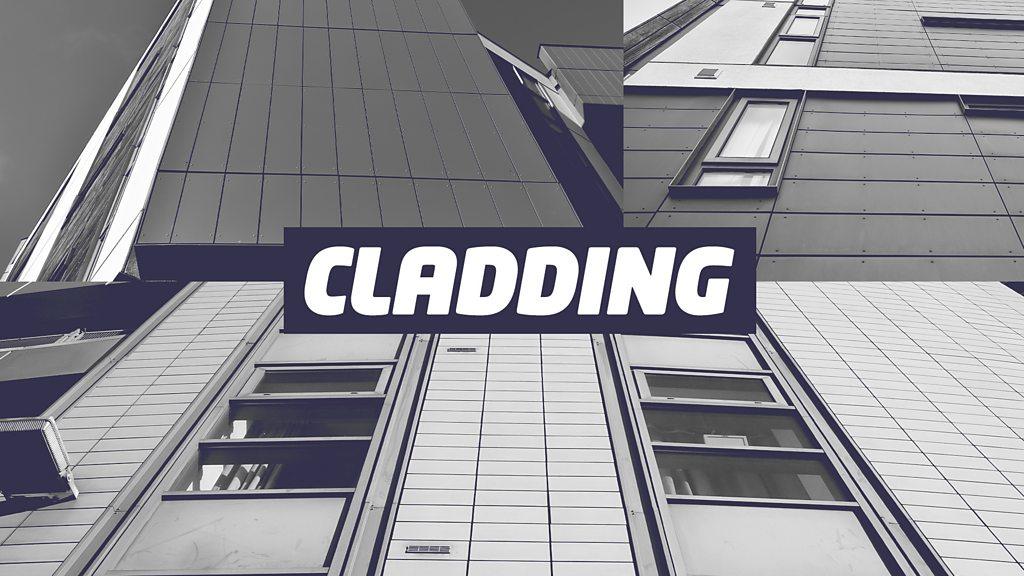Cladding crisis: 'Some days I can't leave the house'
- Published
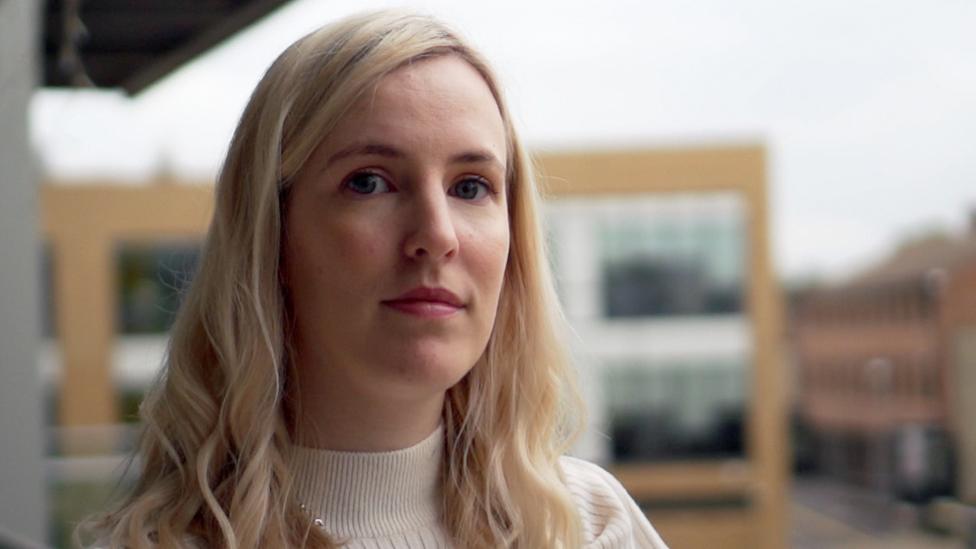
The sale of Sophie Grayling's flat fell through after dangerous external cladding was discovered
"It's like a crippling depression where you can't get up. My anxiety is really bad, some days I can't leave the house."
Sophie Grayling, 28, bought a two-bed flat in Chelmsford, Essex just weeks after her son Reuben was born in 2017. It was supposed to be a safe, secure place to bring up a child, but all that quickly changed.
In December 2020, the mother-of-one was told the building had dangerous external cladding and as a result, the sale on her property fell through.
Since then, she tells the BBC she has felt "trapped and helpless", living constantly in fear that she might lose the roof over her head and have to declare bankruptcy.
Concerns over building safety were triggered by the Grenfell Tower fire in 2017 in which 72 people died.
An inquiry found the type of cladding used was the primary cause of the fire's rapid spread.
It's estimated more than half a million people are still living in flats with dangerous cladding and flammable materials. Some are facing bills of more than £100,000 to make their properties safe.
'Living through an ongoing trauma'
New research, shared exclusively with the BBC by the University of Sheffield and UK Collaborative Centre for Housing Evidence, concluded the building safety crisis is having a "catastrophic impact on the mental health of some leaseholders".
Dr Jenny Preece's research is based on a series of in-depth interviews carried out over the summer with affected leaseholders from England and Wales.
"Several people talked about a point of crisis and needing to get help from a GP; they felt trapped and it was leading to feelings of suicide and self-harm," she said.
"Some participants were taking anti-depressants as a result of the mental health impact of the problems they were living with: you're stuck and there's literally nothing you can do about it."
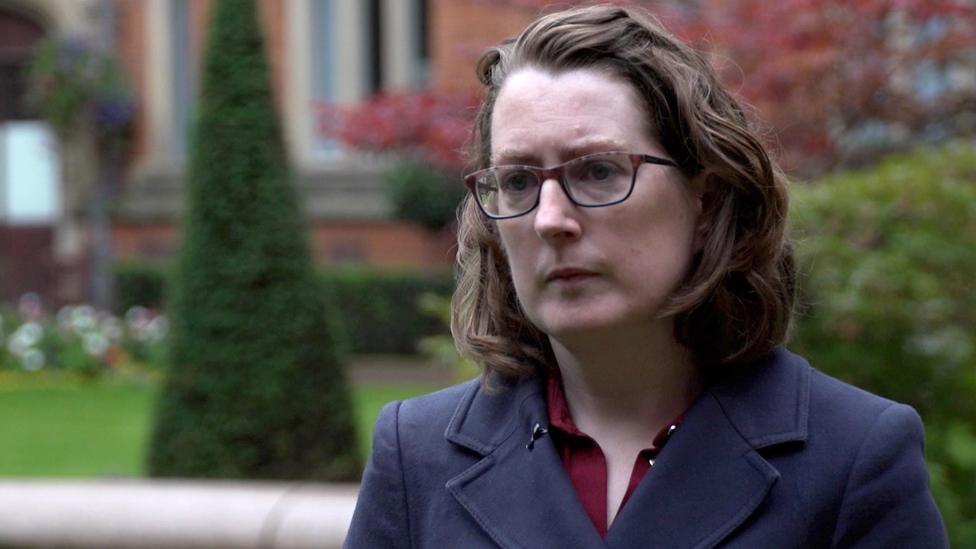
Dr Jenny Preece's research among leaseholders found some had "feelings of suicide and self-harm"
The impacts were likened to living through "ongoing trauma". Leaseholders talked about the loss of control over their own lives, the inability to plan for the future, no timeframe for building safety problems to be resolved and the crippling financial burden on their shoulders.
Another cladding victim, Will Martin, 33, described it as being "like a ball and chain wrapped around your legs".
Mr Martin is a junior doctor who owns a flat in Sheffield with dangerous cladding. He is the co-founder of the campaign Organisation UK Cladding Action Group and has helped to organise nationwide protests and demonstrations.
That has been his coping mechanism, but Mr Martin says he deeply regrets his decision ever to buy a flat.
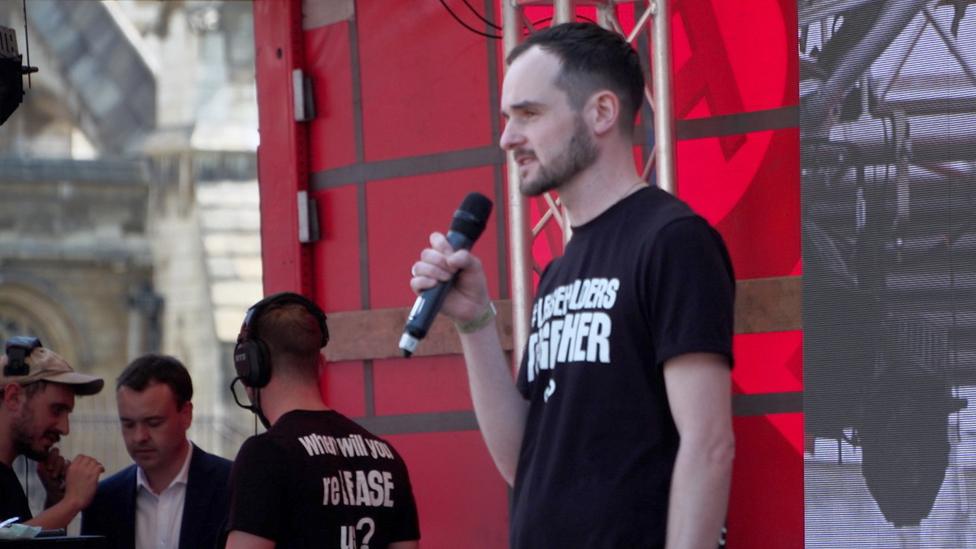
Will Martin co-founded the campaign organisation UK Cladding Action Group
"I was so embarrassed and utterly ashamed that I, a sensible person, made this colossal mistake and error of judgement by buying this property. The last four years and the impact it has had on my mental health will stay with me forever. It has been torturous," he said.
"Government has always said 'leaseholders should not have to pay', but the reality is that many face a constant barrage of entirely unaffordable bills and, in addition to paying through their pockets, today's research by the University of Sheffield lays bare the mental health costs faced by many on a daily basis."
Back in Essex, Ms Grayling went to her GP for help and was prescribed anti-anxiety medication.
Her doctor was so shocked by the situation he wrote to her local MP, Vicky Ford, asking for the issues to be raised in Parliament.
"Sophie feels utterly trapped. She cannot remortgage, she cannot sell."
'Counselling support'
Last year, the House of Commons Housing Select Committee, made up of a group of cross-party MPs, warned that the cladding scandal was becoming a public health crisis.
Psychologists have told the BBC that people living in these conditions for long periods of time will need counselling and therapy to get through it.
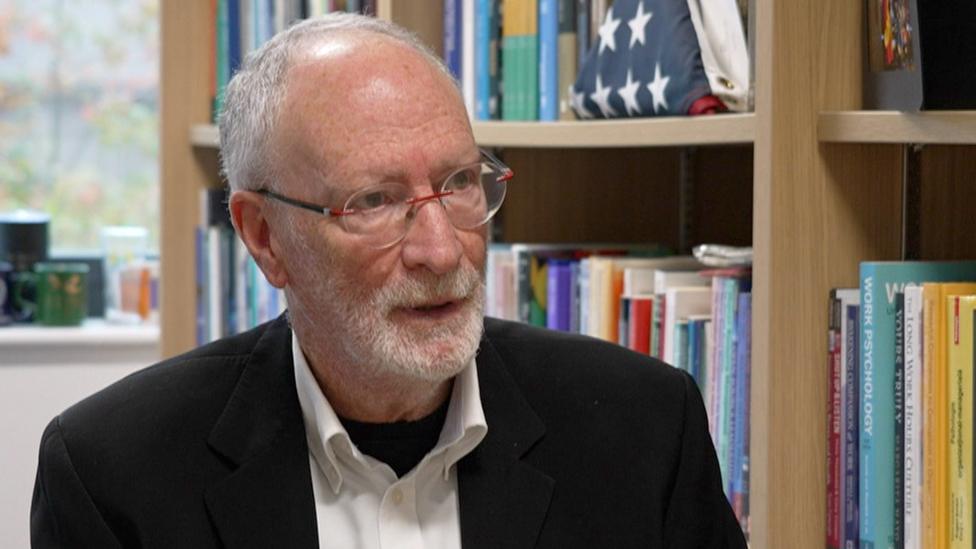
Professor Sir Cary Cooper says the affected leaseholders will need "counselling support"
Professor Sir Cary Cooper is a leading stress expert and occupational psychologist at the University of Manchester.
"In life, uncertainty and lack of control are the two leading causes of stress, and these people have it in tonnes," said Professor Cooper.
"Number one, you know you are going to have to cough up some money. Number two, you don't know how much and it could be substantial. So the worries about that, on top of everything else, these people really do need support and they will need counselling support."
"We're paying to live in a dark, dull box"
According to Dr Preece, the financial burden, rather than safety concerns, has often been the great source of concern for leaseholders: "If we don't see a change in policy or government action where is it going end?"
Her report makes a series of recommendations, including urging the government to carry out an audit of the number of buildings affected and extend the funding to cover buildings of all heights and all types of fire safety faults.
It also calls for a taskforce to be established to pursue residential developers and manufacturers of cladding materials for compensation.
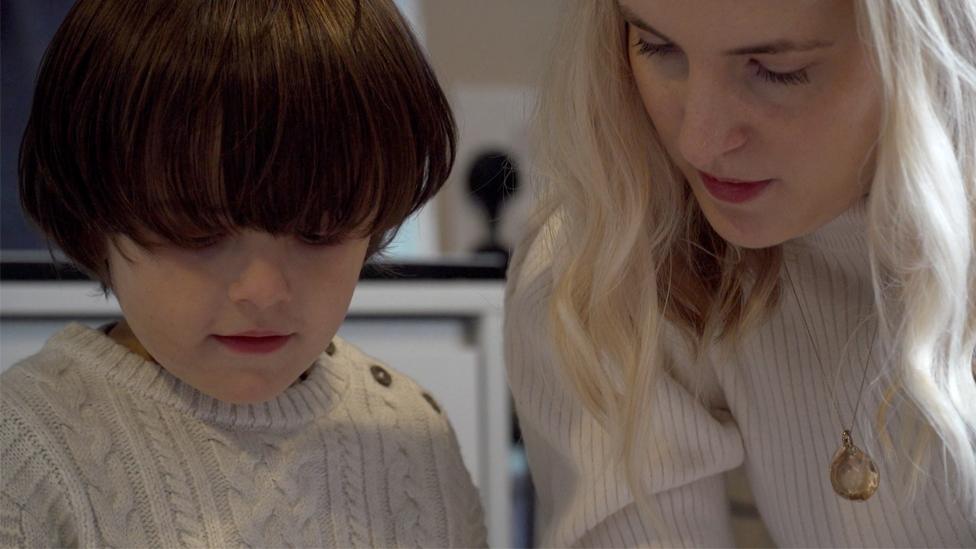
Sophie Grayling hopes she will soon be able to sell her flat because the developer has agreed to pay to replace the cladding
Ms Grayling's building in Chelmsford is less than 18 metres in height, and, therefore, not eligible for government funding to fix the faults.
But after months of uncertainty, the developer of her block has now agreed to pay to remove and replace the dangerous cladding. She hopes she may soon be able to sell the flat and move on with her life.
"I am at the tip of the iceberg, I feel lucky," she says. "I have support from friends and family [and] my love for my son got me through, pulled me out of the deepest despair and meant I did get help."
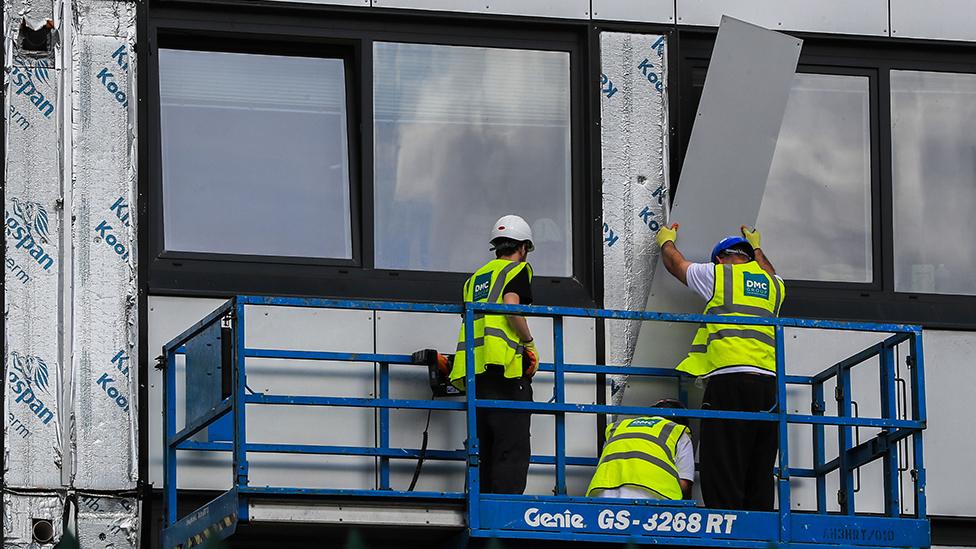
Cladding being removed from a tower block in Manchester
The government has promised a £5bn Building Safety Fund to remove flammable cladding on high-rise buildings of above 18 metres in height, but MPs have estimated the total cost would be £15bn.
A Department for Levelling Up Housing and Communities (DLUHC) spokesperson said the department would be setting out "further proposals in due course" to support leaseholders in low and mid-rise blocks.
"It is unacceptable and unfair that leaseholders are facing excessive bills - they are innocent parties in this and we recognise the impact it can have on their mental health," the DLUHC spokesperson said.
"Building owners and industry must make buildings safe without passing on costs to leaseholders.
"Most blocks of flats are safe and do not need expensive works, and we continue to drive extreme risk aversion out of the market, by encouraging a more proportionate, evidence-based approach from lenders and insurers."
- Published13 June 2022
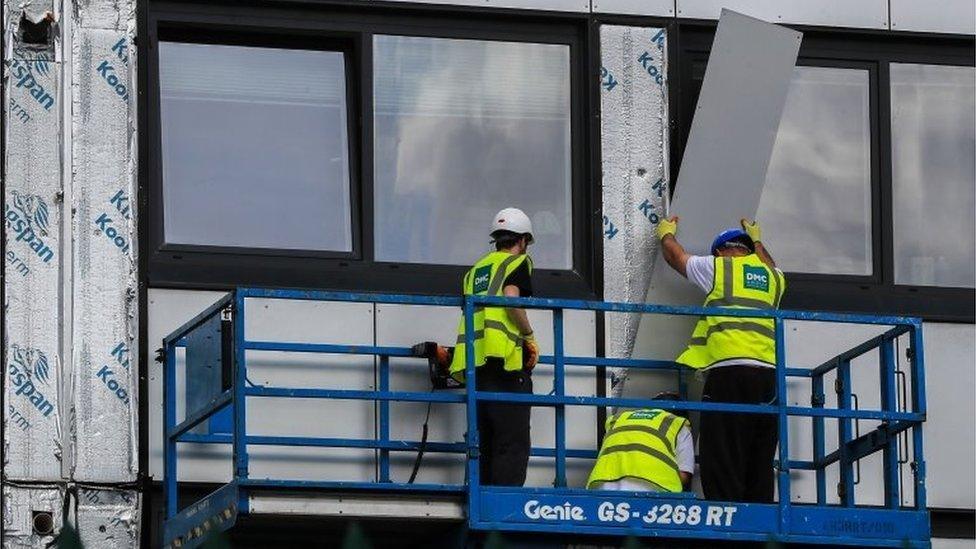
- Published2 March 2021
